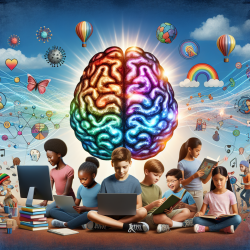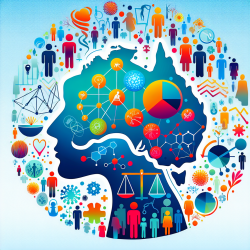Introduction: The Promise of Social and Affective Neuroscience
In the realm of educational and therapeutic services, understanding the intricate workings of the brain is pivotal. Social and Affective Neuroscience (SAN) offers a wealth of insights that can transform how we approach therapy, especially in online settings like those provided by TinyEYE. This blog explores how practitioners can harness SAN research to improve their skills and outcomes for children.
The Impact of SAN on Educational Outcomes
Recent advancements in SAN highlight its potential to enhance educational outcomes. By understanding how social interactions and emotional processes are wired in the brain, educators and therapists can tailor their approaches to better meet the needs of children. Here are some key takeaways from the research:
- Enhanced Social Skills: SAN research shows that targeted interventions can significantly improve social cognition and emotional regulation, which are critical for academic and social success.
- Emotional Well-being: Understanding affective neuroscience helps in developing strategies that support emotional resilience, reducing anxiety and improving focus in learning environments.
- Customized Learning Approaches: Insights from SAN can guide personalized learning plans that cater to the unique neurocognitive profiles of students, fostering better engagement and retention.
Implementing SAN in Online Therapy
For practitioners providing online therapy, integrating SAN principles can be transformative. Here are practical steps to incorporate SAN insights into your practice:
- Utilize Neuroimaging Insights: Stay informed about the latest neuroimaging studies to understand how different therapeutic interventions affect brain activity. This knowledge can refine your therapy techniques.
- Focus on Emotional and Social Skills: Develop programs that emphasize emotional intelligence and social interaction, as these are crucial areas identified by SAN research.
- Engage in Continuous Learning: Encourage practitioners to participate in SAN-related workshops and conferences to stay updated on emerging trends and methodologies.
Encouraging Further Research and Collaboration
While the current research provides a solid foundation, ongoing studies and collaborations are essential to fully realize the potential of SAN in educational settings. Practitioners are encouraged to:
- Collaborate with Researchers: Engage with SAN researchers to develop evidence-based interventions that can be tested and refined in real-world settings.
- Participate in Studies: Involve your practice in SAN studies to contribute to the growing body of knowledge and gain firsthand insights into cutting-edge research.
- Advocate for SAN Integration: Work within your institutions to advocate for the inclusion of SAN principles in curricula and professional development programs.
Conclusion: A Call to Action
The integration of Social and Affective Neuroscience into educational and therapeutic practices holds immense promise for enhancing children's developmental outcomes. By leveraging SAN insights, practitioners can create more effective, personalized, and empathetic approaches to therapy and education. As we stand at the cusp of this exciting frontier, let us commit to exploring and implementing these groundbreaking strategies for the betterment of our children’s futures.
To read the original research paper, please follow this link: Social and Affective Neuroscience: Ensuring our future.










